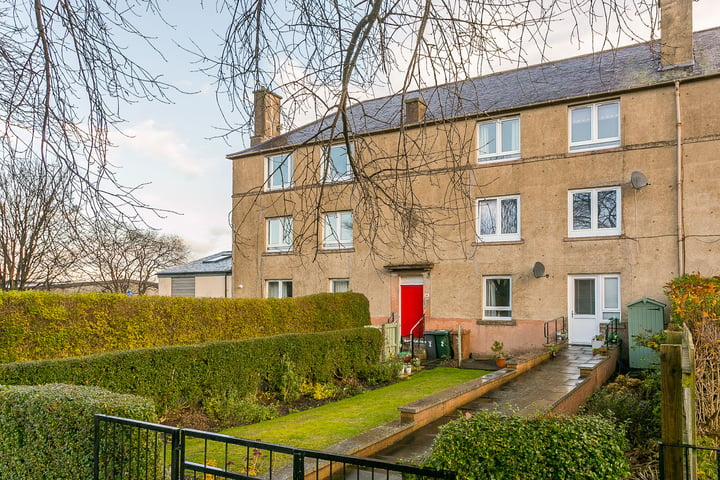Budget 2013 Property-Related Proposals: The Help to Buy Scheme
George Osborne announced his Budget last week and there were significant announcements made that could have a huge impact on the property market. However, with some of these matters being devolved to the Scottish Government, and with different implementation dates for the various schemes, it wasn’t actually immediately obvious how these proposals would affect property owners and property buyers in Scotland. So, how will this affect YOU, and what effect does the Help to Buy scheme actually have in Scotland? Plus, is it actually a good idea and will it work? For a summary of the proposals, Press reaction to the schemes and, of course most importantly, my own reaction to these proposals, read on!
In Brief
- Budget 2013 for an ‘Aspiration Nation’
- ‘Help To Buy’ (HtB) scheme to be introduced in January 2014
- HtB Scheme has been introduced to help FTBs onto property ladder and to help others progress up the ladder
- HtB – mortgage guarantee aimed at encouraging lenders to offer affordable loans to borrowers with deposits between 5-20%, underwritten by Government
- HtB – Shared equity scheme whereby Government guarantee up to 20% of cost of new build property, interest free for 5 years, repayable on sale. Up to £600,000 on a new build property, comes into effect from 1st April 2013. Not available in Scotland but £266 million earmarked for Scotland if the Scottish Government wants to apply it to a similar scheme.
- HtB echos Thatcher’s Right To Buy scheme, drawing parallels and criticism from other parties and critics
- MI New Homes scheme – offers guarantees to lenders to offer up to 95% LTV on new homes up to £250,000 in Scotland, already up and running and backed by the Scottish Government. http://www.homesforscotland.com/mi_new_home.aspx
Press Reaction to the Proposals
“The chancellor also announced a new mortgage guarantee, which he claimed would dramatically increase the availability of loans. It extends the previous NewBuy Guarantee scheme to include older houses as well as new-builds. We’re going to help families who want a mortgage for any home they’re buying, old or new, but who cannot begin to afford the kind of deposits being demanded today,” he said. It will run for three years from the start of 2014 and will be used to support £130bn of mortgages.”
http://www.bbc.co.uk/news/business-21849974
“In case you missed it, George Osborne plans to offer loans on new builds of up to 20%. And more daringly, he plans to offer guarantees on mortgages. The idea is just like that of a doting parent, who offers to put up their own assets should things go wrong with the bank’s loan… Long gone are the days when the banks would extend 95% loans (or higher!) alongside fantastic teaser deals with low rates. So when the government effectively says, “we’ll put up the other 20%” and brings back the classic 95% mortgage, that obviously has its attractions for many. The chancellor is counting on his policy to bring serious sub-prime lending to the UK and to kick-start the economy… This policy scam needs one thing in order to work: interest rates have to stay pinned to the floor.”
http://www.moneyweek.com/news-and-charts/economics/uk/budget-2013-now-osborne-is-all-in-63222
“Despite Mr Osborne’s deliberate echo of the Thatcher government’s “right-to-buy” scheme – probably the single most popular and electorally successful policy the Conservatives ever produced – his “help-to-buy” initiative is actually likely to have the opposite effect. Rather than getting the state out of the housing market, this plan is actively encouraging individuals to borrow money to buy property, with the taxpayer backing the risk. And, as almost everyone immediately realised, there seems to be no reliable mechanism for ensuring this policy will help poor people get into the housing market, rather than benefiting those who already regard property as primarily a way of making money, and not of merely putting a roof over their heads.”
http://www.heraldscotland.com/comment/columnists/why-help-to-buy-policy-will-only-benefit-the-rich.20601106
“The Chancellor put his strongest emphasis on measures to encourage home ownership, with a radical scheme for the government to underwrite mortgage lending to the tune of £130 billion.
The announcement immediately raised fears that Mr Osborne could start “a new housing bubble”, bringing the spectre of the bad debt which helped cause the 2008 economic crisis and ushered in the age of austerity… Mr Osborne also set up a £3.5bn scheme in England to provide interest-free loans for anybody who wants to buy a new-build house worth up to £600,000, with £266m provided to the Scottish Government to set up a similar scheme.
The Help-to-Buy scheme, which has echoes of Margaret Thatcher’s Right-to-Buy initiative which boosted home ownership in the 1980s, will see the government offer loans to reduce the size of the deposit homebuyers need to raise.
As part of the scheme, the government will also offer to carry some of the risk of mortgages, guaranteeing up to £130bn in a move intended to encourage lending.”
http://www.scotsman.com/news/uk/budget-2013-osborne-bid-to-restart-housing-market-1-2847232
“The UK Government will introduce a mortgage guarantee to encourage lenders to offer 95 per cent loans, leaving would-be buyers to find a deposit of just five per cent – around £10,500 for an average house in Scotland. The scheme applies to existing homeowners as well as first-time buyers and both existing and new-build homes are eligible.
But the Government said another aspect of the scheme – offering prospective buyers a 20 per cent equity loan on new-build properties – would not be available north of the Border unless the Scottish Government decides to implement it.”
http://www.scotsman.com/news/budget-2013-help-for-edinburgh-housing-market-1-2850172
“George Osborne announced with a flourish that the new Help to Buy scheme would support borrowers who would otherwise fail in their attempts to get a mortgage. And who will look after this scheme on behalf of the Government? Hilariously, Northern Rock Asset Management, the wing of the Treasury which presides over running down the “bad bit” of that former darling of the mortgage market, Northern Rock. Chaps, there is a clue in there somewhere… The Government insists that the borrowers this scheme will help are not “sub-prime”, which is a woeful misunderstanding of the term. If these were “prime” borrowers, then their applications for mortgages would be accepted. Lenders will not be falling over themselves to apply.”
http://www.telegraph.co.uk/finance/comment/kamal-ahmed/9950463/Osbornes-sub-prime-mortgage-mistake.html
My Own Analysis of These Initiatives
Anything that is aimed at helping First Time Buyers is of course a welcome development. First Time Buyers are the life blood of the property market and without people being able to get onto the property market the market is not as healthy as it could be.
First time buyers have been struggling to gather a deposit in recent times because the deposits required by lenders have been higher than they were at the peak of the market in 2007 so, on the face of it, it’s good for buyers with smaller deposits that the government is going to underwrite the banks who lend to such buyers, though since the scheme is not just aimed at First Time Buyers it is debatable about whether the scheme just allows lenders to offer even safer loans to people who already have enough money put aside and are moving up the property ladder or buying a second property. However, buyers’ inability to purchase a property or get a mortgage is not just about deposit levels. The lenders’ criteria about whom they will lend to have also tightened, making it more difficult to get a mortgage even if you do have the required deposit. It is of course helpful if the government will underwrite the mortgage, but it doesn’t address the issue of the tighter criteria for whom the lenders are prepared to lend to.
The shared equity scheme for new build properties, with a 20% interest-free loan being provided by the government, will of course help people to get onto the property ladder. A significant chunk of money (about £266 million) has been earmarked for Scotland but it’s up to the Scottish Government to decide that it actually wants to implement a scheme north of the Border. However, my concern is that new-build properties tend to drop in value as soon as you turn the key in the front door. So unless property prices rise in the interim period, anyone looking to move-up the property ladder will have to make a loss to do so and that will discourage people from actually moving.
By encouraging buyers to buy new build properties which carry with them a developer’s premium whereby the value of the property is likely to be lower than the purchase price as soon as the buyer turns their keys in the front door, this is likely in my opinion to ensure that, although buyers are getting onto the property ladder, they are less likely to be able to move up it. In addition, by supporting only the new build and not second hand sector of the market, I am concerned that builders will be less likely to be prepared to be competitive with the pricing of their new build units because they have been given an artificial leg-up compared with the second-hand properties on the market that would normally provide stiff competition to them. All of this makes it unlikely as far as I am concerned that the buyer is going to get a good deal and that once they are on the housing ladder they will then be able to move up it, the one thing that will actually have the desired effect of stimulating the housing market.
My concern is that the initiatives perhaps don’t address the root causes of lower activity levels within the housing market in recent years and that, although they may help buyers onto the housing ladder, they might not help them to move up it in years to come.
Another root cause of the slow-down in the housing market has been a general lack of confidence in the market and this has been the result of general economic doom and gloom, people losing their jobs and the realisation that property prices most certainly can go down as well as up. Simply providing funding for buyers doesn’t address the lack of confidence that buyers will have in wondering whether the asset they have just bought will go down in value in the next few years.
As far as I am concerned, the big winners here are the builders and the lenders. The builders have less incentive to be competitive with their pricing and are given an artificial advantage versus the second-hand property market. The lenders have less risk because the mortgage is backed by a government guarantee. The big question is whether all of these ideas and the amount of public funds being poured into them will actually will help the right people, will help those people for years to come and will actually stimulate movement in the property market. The alternative is that they will simply fill the coffers of house builders, will be used by UK lenders as a way of de-risking their current lending positions and will put people in a position, under the next UK government, where they are unable to move home at all because they are, in real terms, in negative equity in their new build homes.
I have to say that I am less than convinced of the effectiveness of any of these initiatives!






Leave a Reply